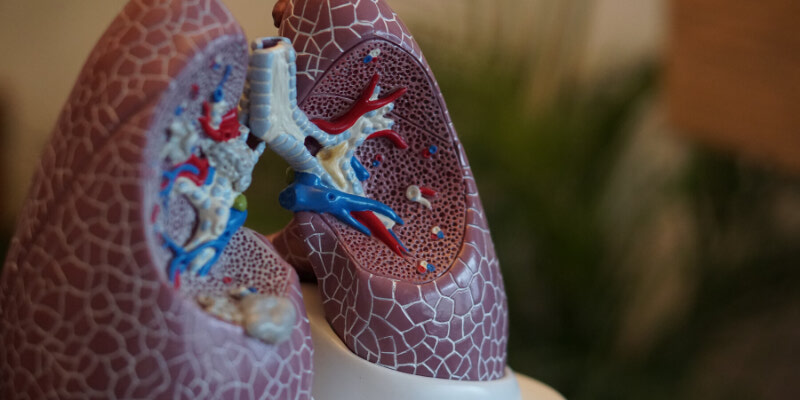Nothing compares to spending the day outdoors and enjoying the warm summer weather. As the temperatures continue to rise, it’s important to keep your breathing and lung functions in mind. Continue reading to learn about the effects that heat can have on those with long-term lung conditions, like COPD or asthma, and how they can stay safe in the summer heat.
Things to Consider
Keeping your lungs healthy in the heat is especially important for those with long-term lung conditions like asthma or COPD, as the heat can cause symptoms to flare up. Here are some things to consider when thinking about summer heat:
-
High levels of ozone: Long-term exposure to ozone is linked to asthma development. Since pollutants react to heat, ozone levels are higher in the summer. This is bad news for those with asthma as it can be triggering and irritating to the lungs.
-
Dehydration: Water keeps the lung tissue and bronchial tubes moist, so a lack of water makes breathing more difficult.
-
Humidity: Denser air can make breathing more difficult and require more effort. When your body must work harder to stay cool, COPD or asthma symptoms often worsen and flare-up.
What to Do
Just because the heat isn’t ideal for your lungs doesn’t mean you can’t enjoy the weather. Here are some helpful tips to keep your lungs healthy in the summer:
-
Use your medications: Your doctor can prescribe medication to help your lungs better handle the weather. Certain medications can help control inflammation which makes your lungs more resilient to the temperature. Talk to your doctor about what they can prescribe to help.
-
Make changes to adapt: Sometimes it’s the simplest changes that can make the biggest difference. If you’re coming inside from the heat to the air conditioning, putting warm clothes on and covering your nose and mouth can help tremendously. Doing this will warm up and humidify the air you’ll breathe in and won’t be as drastic of a change in air temperature for your lungs.
-
Stay hydrated: Drink plenty of water in the summer to avoid the negative effects of dehydration discussed previously.
-
Listen to your body: Some days might be better on your lungs than others, so listening to your body day-by-day is crucial. If your symptoms are flaring up and you’re finding it hard to breathe, stay indoors and take it easy. It’s better to be safe than sorry!
-
Strategically plan your day: Check the forecast and plan your day around the hottest times. Avoid the outdoors during those times, and if you are outside, try to stay in the shade. The hottest time of the day is usually between 11 am and 3 pm, so go out before or after then to avoid extreme heat.
Spending time outside in the summer is great, but your lung health comes first. Planning your days and taking the right precautions can help you minimize breathing issues and make the most of your summer. For the answers to any respiratory questions or to find reliable respiratory products, be sure to contact us!

